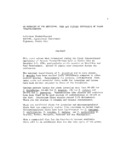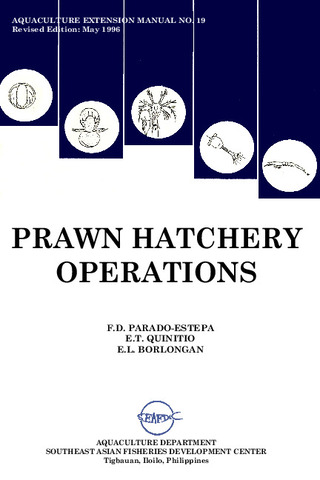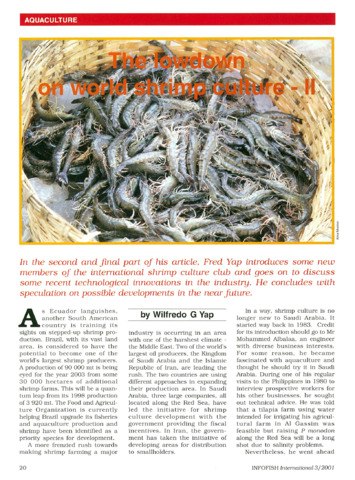Quantitative dietary requirements of postlarval tiger shrimp, Penaeus monodon, for histidine, isoleucine, leucine, phenylalanine and tryptophan
| dc.contributor.author | Millamena, Oseni M. | |
| dc.contributor.author | Teruel, M. B. | |
| dc.contributor.author | Kanazawa, A. | |
| dc.contributor.author | Teshima, S. | |
| dc.date.accessioned | 2013-12-16T07:00:03Z | |
| dc.date.available | 2013-12-16T07:00:03Z | |
| dc.date.issued | 1999 | |
| dc.identifier.citation | Millamena, O. M., Teruel, M. B., Kanazawa, A., & Teshima, S. (1999). Quantitative dietary requirements of postlarval tiger shrimp, Penaeus monodon, for histidine, isoleucine, leucine, phenylalanine and tryptophan. Aquaculture, 179(1-4), 169-179. | en |
| dc.identifier.issn | 0044-8486 | |
| dc.identifier.uri | http://hdl.handle.net/10862/1841 | |
| dc.description.abstract | The quantitative requirements of postlarvae Penaeus monodon for essential amino acids were determined through a series of feeding experiments. Test diets contained casein–gelatin as natural proteins supplemented with crystalline L-amino acids (CAAs) at levels based upon the tissue amino acid profile of postlarvae tiger shrimp. Each set of experimental diets contained graded levels of the test amino acid in a range below and above those found in shrimp muscle protein. The dietary CAA mixture was pre-coated with carboxymethylcellulose (CMC), and the diets were additionally bound with CMC, corn starch, and K-carrageenan to prevent leaching of amino acids and other nutrients. P. monodon postlarvae, PL20, mean body weight of 20 mg, were randomly distributed to 30-l fiberglass tanks at a density of 10/tank and each group was fed a particular diet for 56 days. A one-way analysis of variance was used to determine if there were any significant differences in weight gain, survival, and feed conversion among the dietary treatments for each experiments. Regression analysis of the weight gain responses against dietary amino acid levels was used to estimate the amino acid requirements. The optimum dietary requirements for essential amino acids, in percent of the diet, were: 0.8% histidine, 1.01% isoleucine, 1.7% leucine, 1.4% phenylalanine, and 0.2% tryptophan. Expressed as percent of the dietary protein, the requirement values were: 2.2% histidine, 2.7% isoleucine, 4.3% leucine, 3.7% phenylalanine, and 0.5% tryptophan. This information is crucial in optimizing growth and feed efficiency and in developing cost-effective diets for P. monodon. | en |
| dc.language.iso | en | en |
| dc.publisher | Elsevier | en |
| dc.subject | Penaeus monodon | en |
| dc.title | Quantitative dietary requirements of postlarval tiger shrimp, Penaeus monodon, for histidine, isoleucine, leucine, phenylalanine and tryptophan | en |
| dc.type | Article | en |
| dc.identifier.doi | 10.1016/S0044-8486(99)00160-X | |
| dc.citation.volume | 179 | |
| dc.citation.issue | 1-4 | |
| dc.citation.spage | 169 | |
| dc.citation.epage | 179 | |
| dc.citation.journalTitle | Aquaculture | en |
| seafdecaqd.library.callnumber | VF SJ 0613 | |
| seafdecaqd.databank.controlnumber | 1999-19 | |
| dc.subject.asfa | amino acids | en |
| dc.subject.asfa | feed efficiency | en |
| dc.subject.asfa | feeding experiments | en |
| dc.subject.asfa | larval stage | en |
| dc.subject.asfa | nutritional requirements | en |
| dc.subject.asfa | shrimp culture | en |
| dc.subject.scientificName | Penaeus monodon | en |
Files in this item
| Files | Size | Format | View |
|---|---|---|---|
|
There are no files associated with this item. |
|||
This item appears in the following Collection(s)
-
Journal Articles [1262]
These papers were contributed by Department staff to various national and international journals.




